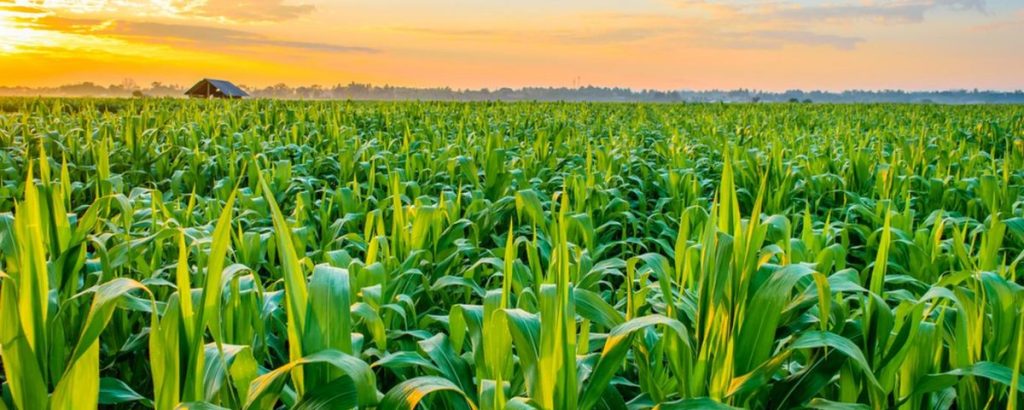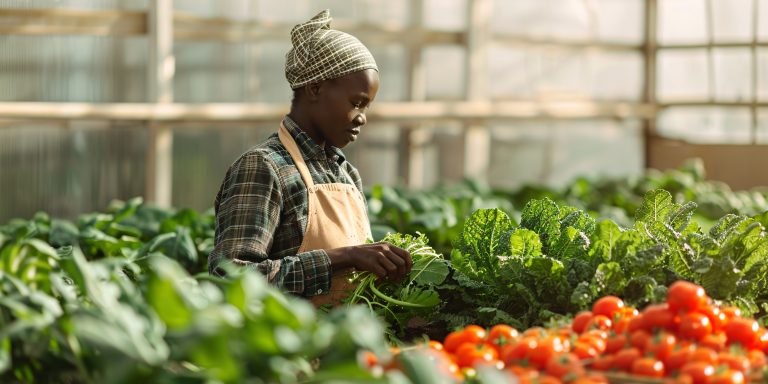7 Viable Crops to Farm in Nigeria

Pineapple Farming
Money is sweet, everything sweet is money, and Pineapple is sweet. Ask any Australian Farmer and he will tell you how huge the income in Pineapple farming is in their country. Any juice maker that doesn’t have Pineapple flavor variety in his product line is not yet in business. That tells you how popular Pineapple is, not only in Nigeria but worldwide.
Nigeria seems to have better soil for Pineapple Farming than Australia where Farmers are making it big in the business. A Pineapple sells in Mile-12 market in Lagos for about N200. If you are able to harvest one million in a year, you will earn at least N80 x 1,000,000 = N80,000,000
Beans Farming
A bag of Beans cost twice more than a bag of Rice and Garri. The Northern Nigerians are making it big in Beans Farming, supplying almost all over Nigeria and beyond. But one thing is that, this same Beans also can do very well in the South East, South West, and South South Nigeria soils. So why only the North?
Rice Farming
It’s almost indisputable by all that the population of Nigeria is around 200 million people. It is also a fact that, at least, 70% of the residents would pick rice first among a list of foods. This translates to around 140 million people eating rice in Nigeria. This is a huge figure, and it’s the reason it remains the costliest among staple foods in the country.
Meeting demand in the market has remained a big challenge. With the closure of Nigerian borders and other measures to discourage the influx of foreign products in the country, the case is worse. This means demand remains largely unmet by supply, making its farming very lucrative.
According to FAO, Nigeria is the leading African producer and consumer of rice. At the same time, the country is one of the largest rice importers in the world. The report also indicated that rice generated more income for farmers than any other cash crop in the country.
Though planting rice at a commercial rate involves the availability of vast land, you don’t need to purchase outright. You can work out an arrangement with a farmland owner on a lease term or profit-sharing ratio relationship. Many farmers who started rice farming from a humble beginning with big vision have today made it big in the business.
Cassava Farming
Nigeria, according to the FAO’s report, is the largest producer of cassava in the world. It is the country’s most common staple food. There is hardly a single house in Nigeria where garri, one of the numerous food products from cassava, is not found. The plant can be grown anywhere in the country, and that the process of nurturing it to maturity is less tedious. This makes it less costly to farm and highly profitable.
Also, cassava does not require an expanse of land to farm it at the commercial level. A cassava plantation on just two plots of land can fetch the farmer hundreds of thousand nairas. Planting to harvest period takes a maximum of eighteen months. Among the numerous products made from cassava include cassava flour, tapioca, and starch. It is also used in the production of some medications, fabrics, paper, and plywood.
Maize/Corn Farming
Virtually most of our breakfast is made of processed corn eg Golden morn, custard, pap/ogi/Akamu, corn flakes, etc. Apart from the ease of planting corn and the rapid growth rate, corn can also be processed easily. Corn farming is undoubtedly one of the most profitable agricultural businesses and Nigerians love it.
A major problem in corn farming is that it is prone to attack by most insects, rodents, animals, and birds around your farm. If not properly taken care of, it can destroy over 27% of your crop yield making you lose your profit.
There’s a surge of interest in the Agricultural sector in Nigeria. A lot of entrepreneurs are taking on various areas of agriculture; disrupting and transforming it into viably successful endeavors using information technology.
From maize farming, rice production to poultry farming and fishery. Farming is starting to recover its age-old respectable reputation.
Plantain Plantation
One thing I like about Plantain is that when planted once, it keeps producing year in year out for eternity. Like Rice and Garri, Plantain is widely consumed in Nigeria. Any food that is popular in Nigeria is always a huge income earner due to the population of the country.
I really haven’t seen Farmers in Nigeria taking advantage of the opportunity in Plantain Farming to create wealth for themselves. Plantain is highly priced in Nigeria and is always in high demand all year round. Fry it, Boil it, Roast it — it will never get angry with you, that’s how liberal Plantain is. I can tell you, Millions of Naira is currently lying fallow untapped in this sector of Farming in Nigeria.
Tomato Farming
The price of tomatoes has not been stable since 2014.
Even as expensive as it is, there is still a large demand for this commodity. Tomato is one of the Most Profitable Vegetables to Grow in Nigeria.
Tomato farming is one of the most profitable Agric businesses to start in Nigeria and ideal farming ideal for small scale Nigerian farmers looking for quick money. This agricultural business can also be combined with Pepper and Onion Farming to make outrageous profits.
If you partake in the 2018 Sallah celebration, you can testify that the price of tomatoes. The price and quantity changed for this product changed. A KG of tomato was sold for ₦800, a slight increase from the usual ₦625. I increase in price but a slight change in demand puts tomato farming on and the fifth place on my list of the Most Profitable Agricultural Business in Nigeria.
Besides, there is no better item on this list that tastes better than rice and stew right?
Besides rice and tomatoes are complementary demand, you need tomatoes to go with the rice. If the price of Rice increases, the price of tomatoes does the same. Currently, a 40kg basket of tomato is sold for ₦29,000 while red pepper (tatashe) costs ₦19,000 per bag, and onion costs close to ₦20,000 a bag.







